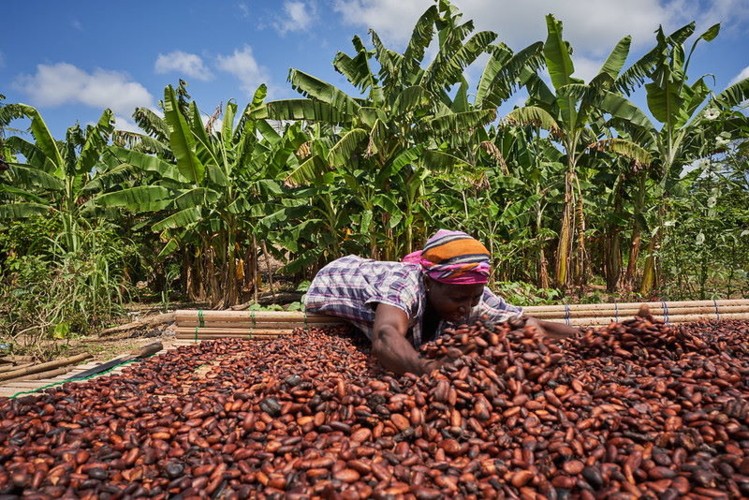Member of Parliament for Offinso South, Dr. Isaac Yaw Opoku, wants government to increase funding to address the cocoa swollen shoot virus disease (CSSVD), warning the virus is a threat to the cocoa industry.
In 2019, government, through Cocobod, the industry regulator, secured a seven-year loan of US$600m from a consortium of financial institutions led by the African Development Bank (AfDB) and Credit Suisse to tackle CSSVD and other challenges in the cocoa sector.
However, speaking with the press at Parliament House on Wednesday, Dr. Opoku indicated that despite the AfDB programme, more has to be done to combat the virus.
CSSVD in cocoa trees is identified by characteristic stem swellings which occur in the shoot, stem branches and roots. Symptoms on young leaves show red vein-banding, while mature ones display mosaic patterns and chlorosis along the mid-rib and veins. Severely affected cocoa trees develop leaf defoliation and dieback.
According to the Cocoa Research Institute of Ghana (CRIG), 12 strains of the virus have been identified, with the strains in the Western Region and adjoining areas of the Bono and Ahafo Regions more virulent than the other strains in the country.
The disease can reduce yields by up to 70 percent and cause the eventual death of cocoa trees within 18-24 months.
A country-wide survey between 2014 and 2017, which covered about 70 percent of the estimated cocoa area, reported that 16.5 percent of the area surveyed and over 300m cocoa trees were affected by the disease.
Out of the US$600m AfDB loan secured by Cocobod, US$223m is being committed to an intensive cocoa rehabilitation programme in the affected areas. This is expected to cover 156,400 hectares of CSSVD-affected cocoa farms countrywide within a period of four years, from 2019 to 2024.
However, Dr. Opoku said this would leave over 200,000 hectares of farms untreated at the end of the period “assuming the disease is static and there is no further spread. This calls for a re-look of our efforts as a nation.â€
He proposed a number of strategies towards this end, including a massive media campaign, mass education on the benefits of the CSSVD control programme, and adequate compensation of farmers to win their cooperation and minimise their opposition to treatment of affected farms.
He also called for a special fund to scale up CSSVD research and said special National Service and NABCO personnel should be trained to assist in the control of the disease. Additionally, he said Parliament should enact a law to make the treatment of affected farms compulsory.
Business24





